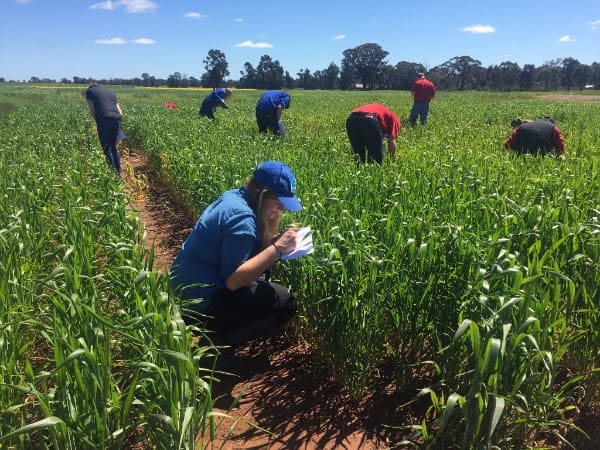Latest listings on Jobs Central recruitment page:
- Farm Manager, NSW – (via Meares & Associates)
- WH&S Advisor – Agribusiness (ACC/ACBH)
- Operations Coordinator, Australia – (Halleen Livestock Traders)
- Livestock Manager, Livestock Handling Facility NQ
- Senior Station Hand, Roma QLD
- Feeding Operations Supervisor – (Wallumba Feedlot)
- Station Manager, Wave Hill – (Western Grazing)
- Overseer – Mixed Livestock (Wards Mistake Pastoral Co)
- Tallow Supply Manager (Graincorp)
- Station Manager – Wylarah (AA Co)
Click here to access these and other jobs currently listed on Jobs Central.

THERE is a digital revolution underway in Australian agriculture, now with the timely confluence of record production levels marking agriculture as one of the key ‘industries of the future.’
But it is the agtech revolution that is changing the traditional harsh image of farming to an industry sector that is increasingly becoming attractive as a career path for the younger generations.
But will the pace of implementation of automated farming technologies threaten or enhance the job opportunities of the future?
Many experts such as billionaire investor Jeff Greene believe that artificial intelligence, big data and robotics pose a serious challenge to both white collar and blue collar jobs. It has been predicted that by the year 2025, robots and automation will take up a third of all jobs.
There is no doubt that these factors will play a key role in the future of agriculture as well. Food and farming systems are now already experiencing a new era of revolutionised farming. There have been major advances in autosteer systems for farm machinery, and there is a range of farm production and sensor technologies directed towards livestock monitoring and the optimisation of water, fertiliser and pesticide applications.
Research on automated farming is rapidly expanding. For example, the University of Sydney has research underway to train a ‘farmbot’ to herd livestock, monitor their health and check they have enough pasture to graze on.
There is also a range of hovering platforms (drones) suited to ultra-high resolution scanning and targeted surveys, and even for interaction with the environment such as targeted spraying of weeds for example. The first fully robotic dairy in the southern hemisphere is in Tasmania, indicating that Australia is a developer and rapid adopter of new technology.
So we would be wise to perhaps advise caution on predicting the future job market for young people in agriculture. However there are four significant factors at play in Australian agriculture at present:
Continued strong growth in agricultural production
In 2016 the national value of agricultural output increased by a remarkable 28 percent. The global importance of agriculture in providing sufficient food for the ever-growing human population means that Australian agriculture will continue on its major expansion path, barring national climatic occurrences
Low unemployment levels
The level of unemployment in Australia is currently around 5.6pc and appears to be relatively steady between 5-6pc, and in the long-term, the Australia Unemployment Rate is projected to trend around 5.6 percent in 2020
On-going skills shortage in Australian agriculture
Many experts have written about the relatively low agricultural graduate level compared with the available jobs, with estimates showing that there are around three jobs available for every graduate. While there is now a consistent increase in university enrolments, it is unlikely to change this statistic significantly into the near future
Baby Boomers retiring
Across farming and the agribusiness services sectors, there is good evidence to show that the average age is approaching the mid-50s, indicating a potential surge in retirements over the next few years.
In conclusion there will be increased automation and robotics in Australian agriculture, but the future remains bright for those wishing to make a career in this key industry sector.
* Dr Ray Johnson is managing director of specialist agribusiness recruitment firm, Agricultural Appointments.

To double the volume of food required in the next few years using the same area of land and same irrigation water with less rainfall, production per ha must double. Robotics will allow individual plant treatment but we need people to prescribe what it is that each plant should be treated with to double its yield. So there will be less tractor drivers and farm labour’s but a whole lot more agronomists/scientists and skilled farmers. The digital revolution in agriculture will significantly increase the number of people needed in ag and our kids love the new “cool” farming stuff.